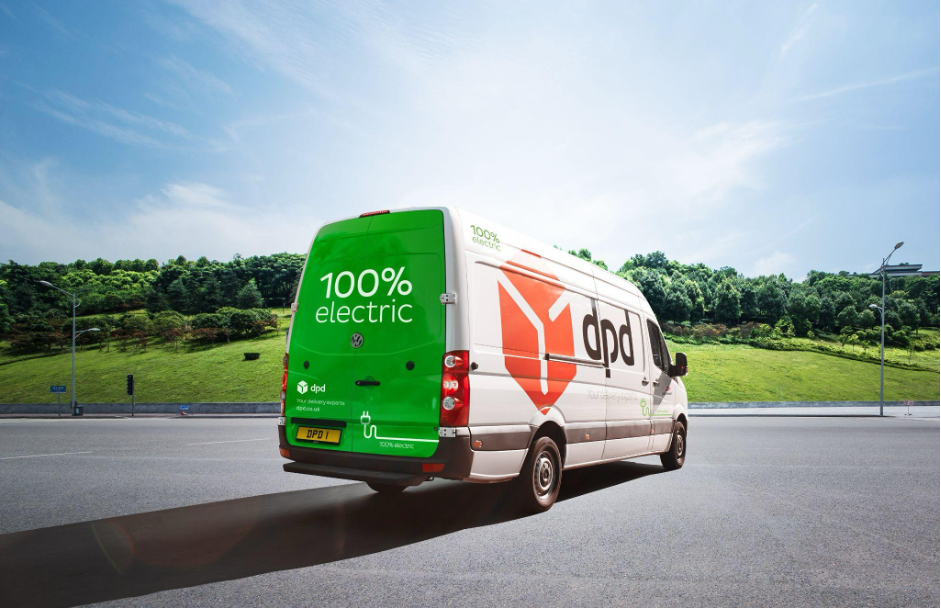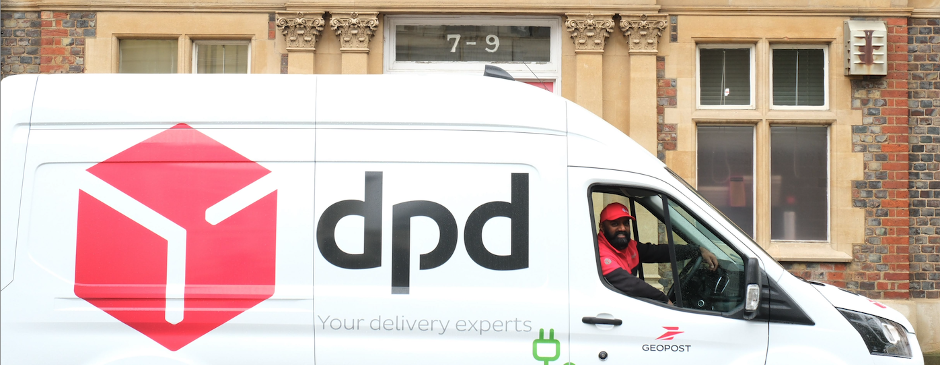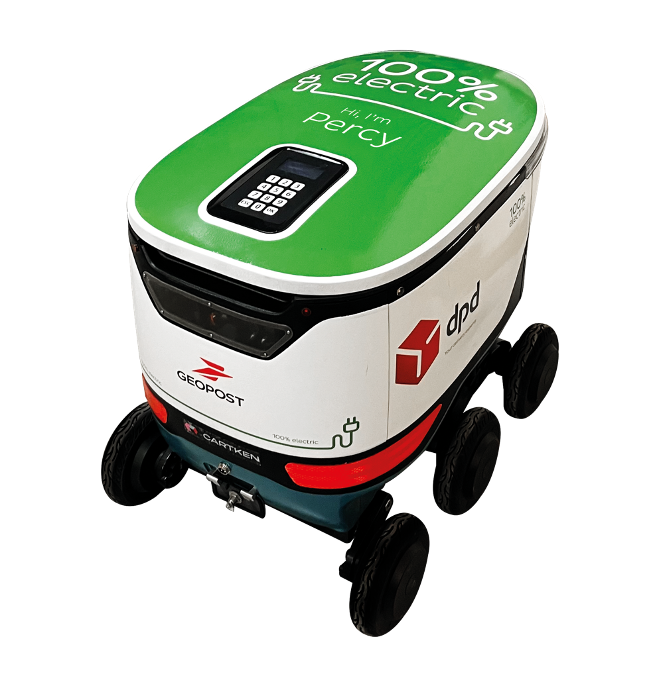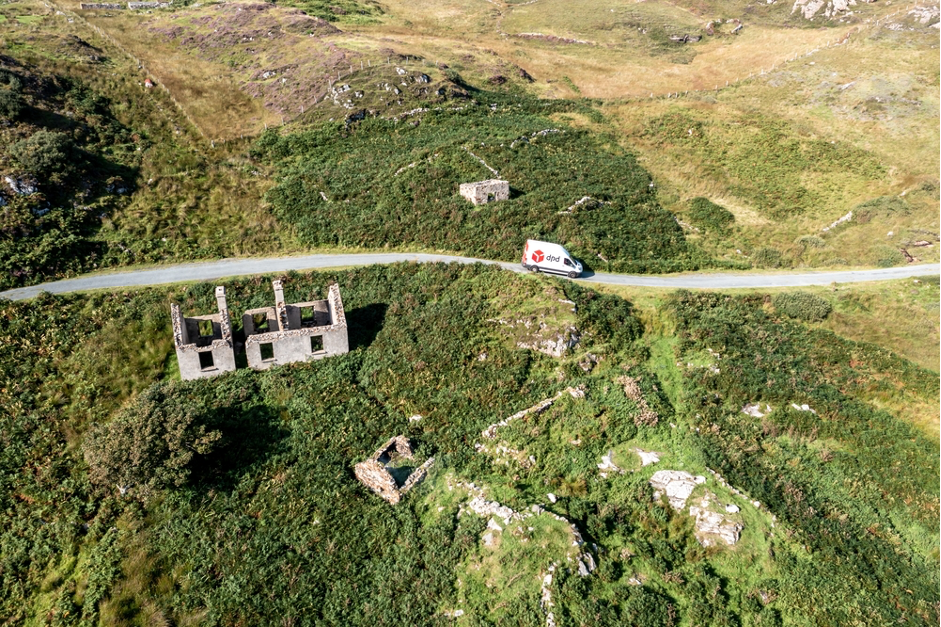Interview with Olly Craughan, Head of Sustainability at DPD

Olly Craughan is Head of Sustainability at DPD UK, and has been named the No.1 Decarbonisation 'Power Player' by Motor Transport magazine in 2023.
Thanks for joining us, Olly. Can you tell us a little bit about DPD's sustainability mission?
Absolutely. As a parcel courier, one of the largest in Britain, we have an impact on the environment, and we recognise that because of this, DPD have an obligation to make sure we're doing everything possible to be sustainable.
Our goal is to be net zero by 2040, and we have a 2030 target to reduce our emissions by 43% (baseline 2020). These aren't empty words. As part of our parent group, Geopost, we're fully validated by the Science Based Targets initiative (SBTi), which means they've looked at our plans in detail and determined that they're realistic.
What's the biggest change to DPD as a business that you've overseen as part of this net zero 2040 goal?
Bringing in more electric vehicles (EVs) to DPD was a clear priority. We had just 139 EVs in 2020, but we closed 2023 with 3,600. That's an incredible increase of over 2400%. That also represents almost a third of our final mile fleet.
Six years ago we were only delivering around 30,000 parcels a year on EVs. Last year DPD managed to hit 64 million. This year we want to smash that record by achieving 100 million parcels delivered sustainably on our all-electric vans.

What difficulties have you found in this transition? How are you overcoming them?
Our HGVs pose a problem as the technology to electrify them while still maintaining their shipping power is less developed. One solution is Hydrogenated Vegetable Oil (HVO), an alternative to diesel made from waste cooking oil. HVO is compatible with our diesel engines and offers a reduction in CO2e of up to 90% compared to diesel. We're investing over £10 million a year into HVOs, and last year alone we increased the proportion of our HGVs that use HVOs from 10% to 95%.
On top of that, this year we will be trialling both electric and hydrogen fuel cell HGVs, which are critical in achieving our net zero ambition.

Hydrogen-powered vehicles sound like an innovative development. Are there other new technologies DPD is experimenting with?
One of the most exciting things we've done in recent years is roll out automated, robot deliveries. We launched our first robot in Milton Keynes in July 2022. We had one, initially, named Evie. DPD parcel recipients are notified of a robot delivery in advance, and once they confirm that they are at home to receive the parcel, the robot is dispatched. They can track the robot's progress on a map, and then use a PIN code to open the secure compartment and access their parcel. Once the compartment is closed, the robot continues its journey to the next recipient. Because they're electric it means we're less reliant on diesel vans which is always going to be a key priority for DPD moving into the future.
The experiment in Milton Keynes has been such a huge success that we decided to roll out robot deliveries to ten more depots across the UK. Raunds was the first, and its robot went live last year. Already in 2024, we've had Bristol and Leeds receive robots, and people living in Hinckley should keep an eye out for their local delivery robot soon delivering their parcel. People really seem to be loving the DPD robots too - they are pretty cool, and people want them in their postcode.

That's an exciting development. Deliveries are clearly somewhere DPD can make an impact, but what about your depots and other sites?
Infrastructure is another big area we're being very careful to consider. DPD recently opened a new regional sortation centre in London Docklands - and we were very keen to make sure we were getting everything right on the sustainability front. First of all, it has 500 EVs, making it completely electric. It generates 1.2 Mw of energy from solar panels, and all of the furniture at the site is made from recycled or sustainable materials. We see Docklands as a model for other new depots to follow as we continue to expand.
Additionally, we recently invested £300,000 to launch a sustainable business incubator programme: the EcoLaunchpad. Here we invite companies to pitch new solutions to address CO2 reduction in our transport fleet and buildings infrastructure. This initiative led to us recently winning the 'Supply Chain Innovation' award at the Retail Technology Innovation Hub awards.

It's not just about improving our fleet and infrastructure, though. We do what we can to give back to our communities. For example, we've partnered with Treeapp - which means for every 10 deliveries made by an EV to a consumer using the DPD app, Treeapp will plant a tree. So far this has resulted in 200,000 trees being planted. We've also donated £90,000 to wetlands restoration in Nottinghamshire. On top of that, we've donated over £650,000 since the start of 2020 from the sale of shrink wrap and pallets to environmental good causes, such as WWF and RSPB. We also recycle 90% of our waste, which is 20% higher than in 2019.
We also appointed volunteer Energy Champions at all sites to promote sustainability awareness and to find and identify CO2 savings opportunities.
Thanks, Olly. So where does DPD go from here?
We want 4,000 electric vehicles by the end of this year. This means that 40% of our final mile fleet will be electric. 30 cities across the UK will also have electric-only delivery. By 2030 we want 100% of our final mile fleet to be EVs. We want 100% of our HGV fleet to be using HVOs, also. I also mentioned that we want 100 million parcels delivered by an EV this year, and I'm excited to see that happen. DPD really believe we can be the leading sustainable parcel delivery firms across the UK.
Our efforts have resulted in a reduction in carbon emissions by over a third since 2020. We're very proud of this fact at DPD and will continue to push forward to reach our net zero ambitions.


 © DPDgroup UK Ltd. All rights reserved. Registered in England and Wales: company no. 00732993. Registered office: Roebuck Lane, Smethwick, B66 1BY.
© DPDgroup UK Ltd. All rights reserved. Registered in England and Wales: company no. 00732993. Registered office: Roebuck Lane, Smethwick, B66 1BY.